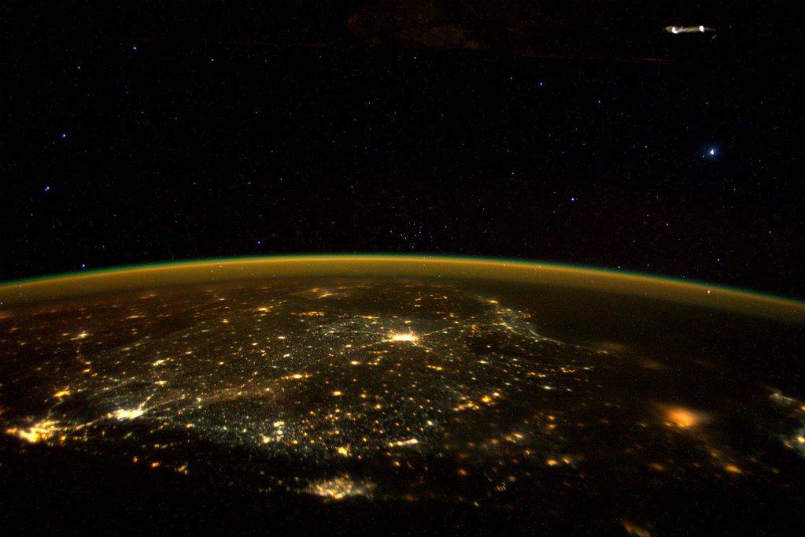DigiYatra: How AI changed the way we travel by air in 2022
Once just some buzz and part of a sanitised sales pitch, Artificial Intelligence is now a crucial part of India’s digital revolution. AI, as it is popularly known as, is driving several technologies today, no matter if it is aimed at consumers or enterprises or governments. With the help of machine learning, AI has proven to be more effective in delivering essential services. While the use of AI in India is growing at a rapid pace — with the estimated growth of 20 percent in the next five years according to a joint study of Microsoft and Internet and Mobile Association of India (IAMAI), this year, we saw some major implementations of the technology.
Facial recognition emerged as the top benefittor of AI implementation. In 2022, facial recognition software spread everywhere. Not only the private and government offices employed facial scanning for their workforce, but the technology was also used for consumer services. One of the outcomes of that implementation is DigiYatra.
What is DigiYatra?
DigiYatra is an AI-based technology that eliminates the need for manual checks at airports. In other words, your face serves as your boarding pass at airports. The Computer Vision-based technology, available to consumers through a dedicated app, is now available at major airports in India. With the help of facial recognition, the DigiYatra technology allows the security check to be conducted with just your face, which is linked to all the necessary information required for a secure air travel. According to the website of the Delhi Airport, DigiYatra allows for faster movement to boarding gates, hassle-free travel, and shorter wait times at airports — in what could be one of the major advantages of the facial scanning technology.
Since the DigiYatra app uses your biometric information retrieved from your Aadhaar profile, passing through boarding gates becomes easy. Sure, the app needs a little more information, such as your boarding pass and a selfie to authenticate your identity, but the entire process barely takes any time. Once you have provided the necessary information, the Facial Recognition System (FRS) at the airport will use artificial intelligence to scan your face and verify if the facial data is linked to the correct individual.
While there have been concerns about privacy related to the DigiYatra technology, it is a part of the government’s efforts to make airport security check as contactless as possible, especially in the post-pandemic era. “…with the increased number of people, the threat of COVID-19 variants being transmitted from one person to another is also a serious concern. To overcome such threats, the government of India has issued Digi Yatra which is based on Computer Vision technology,” the India AI portal reads.
Ulterior motives?
The India AI portal has mentioned that the facial data is stored in databases managed by the police in nations such as the US. Once your face goes through a scanning system at an airport, your details are logged into the system when you enter a country. It can “monitor the people who are walking in and leaving the airport.” The website has cited the example of the Department of Homeland Security of the US where it uses the entry logs to determine people who have overstayed in the country after their visa expired to showcase the benefits of the DigiYatra technology. This comes across as an admission that the Indian government also wants to use the DigiYatra data for weeding out people who are staying beyond the legal permit. Could this be the ulterior motive of this technology? Only time will tell.
However, for now, DigiYatra is one of the best use cases of artificial intelligence in India in 2022. The government is planning to expand the uses in future and hopefully those applications will fall in line with the new Data Protection Bill.
The post DigiYatra: How AI changed the way we travel by air in 2022 appeared first on BGR India.

Once just some buzz and part of a sanitised sales pitch, Artificial Intelligence is now a crucial part of India’s digital revolution. AI, as it is popularly known as, is driving several technologies today, no matter if it is aimed at consumers or enterprises or governments. With the help of machine learning, AI has proven to be more effective in delivering essential services. While the use of AI in India is growing at a rapid pace — with the estimated growth of 20 percent in the next five years according to a joint study of Microsoft and Internet and Mobile Association of India (IAMAI), this year, we saw some major implementations of the technology.
Facial recognition emerged as the top benefittor of AI implementation. In 2022, facial recognition software spread everywhere. Not only the private and government offices employed facial scanning for their workforce, but the technology was also used for consumer services. One of the outcomes of that implementation is DigiYatra.
What is DigiYatra?
DigiYatra is an AI-based technology that eliminates the need for manual checks at airports. In other words, your face serves as your boarding pass at airports. The Computer Vision-based technology, available to consumers through a dedicated app, is now available at major airports in India. With the help of facial recognition, the DigiYatra technology allows the security check to be conducted with just your face, which is linked to all the necessary information required for a secure air travel. According to the website of the Delhi Airport, DigiYatra allows for faster movement to boarding gates, hassle-free travel, and shorter wait times at airports — in what could be one of the major advantages of the facial scanning technology.
Since the DigiYatra app uses your biometric information retrieved from your Aadhaar profile, passing through boarding gates becomes easy. Sure, the app needs a little more information, such as your boarding pass and a selfie to authenticate your identity, but the entire process barely takes any time. Once you have provided the necessary information, the Facial Recognition System (FRS) at the airport will use artificial intelligence to scan your face and verify if the facial data is linked to the correct individual.
While there have been concerns about privacy related to the DigiYatra technology, it is a part of the government’s efforts to make airport security check as contactless as possible, especially in the post-pandemic era. “…with the increased number of people, the threat of COVID-19 variants being transmitted from one person to another is also a serious concern. To overcome such threats, the government of India has issued Digi Yatra which is based on Computer Vision technology,” the India AI portal reads.
Ulterior motives?
The India AI portal has mentioned that the facial data is stored in databases managed by the police in nations such as the US. Once your face goes through a scanning system at an airport, your details are logged into the system when you enter a country. It can “monitor the people who are walking in and leaving the airport.” The website has cited the example of the Department of Homeland Security of the US where it uses the entry logs to determine people who have overstayed in the country after their visa expired to showcase the benefits of the DigiYatra technology. This comes across as an admission that the Indian government also wants to use the DigiYatra data for weeding out people who are staying beyond the legal permit. Could this be the ulterior motive of this technology? Only time will tell.
However, for now, DigiYatra is one of the best use cases of artificial intelligence in India in 2022. The government is planning to expand the uses in future and hopefully those applications will fall in line with the new Data Protection Bill.
The post DigiYatra: How AI changed the way we travel by air in 2022 appeared first on BGR India.




